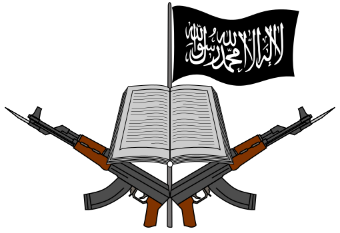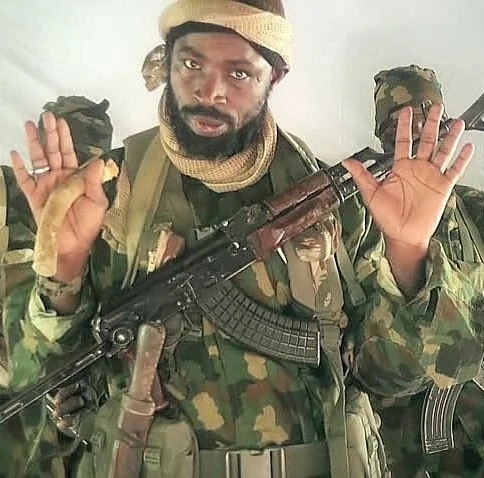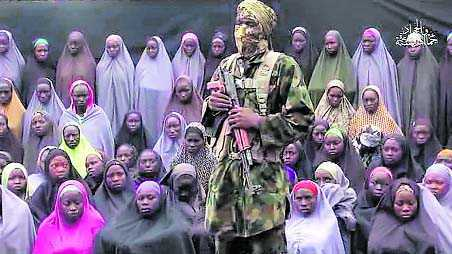Urvashi Rautela Hot and Sizzling Look in Lockdown
- 14-05-2020
- News
Abubakar Shekau, the leader of the Nigerian terrorist group Boko Haram, has been pronounced dead after decades of violent crimes against humanity. He was pronounced dead by the Islamic State’s West African Province (ISWAP) leader, Abu Musab Al-Barnawi. The death of Boko Haram is yet to be confirmed by the Nigerian government. Let’s take a closer look at the life of Abubakar Shekau, the man who terrorized Nigeria for years, causing the deaths of thousands of people and millions of displacements.
To learn about Abubakar Shekau, you need first to be aware of Boko Haram, the terrorist organization led by Abubakar Shekau, and its history of violence and insurgency.

The term Boko Haram means “westernization is sacrilege”. Boko Haram was a relatively underground terrorist group from Nigeria that was founded in 2002 by the then-leader Muhammed Yusuf. The group originated in the Northeastern state of Nigeria in Maiduguri, Borno. They were initially called “people committed to the prophet’s teachings for propagation and Jihad”. They got the name Boko Haram based on their lifestyle, and the naming was done based on their lifestyle choice and ideologies. Ideologically Boko Haram was against the western influences in Nigeria, which according to them, led to the rise of corruption and an immense gap between the rich and the poor.
Boko Haram came into the limelight in 2009 after being subjected to excessive force by the police for an investigation. The group launched organized attacks on police stations and killed many police personnel around the country. When the matters escalated beyond the control of the police, the army was brought for a joint operation. The joint operation from the army killed over 700 Boko Haram militants and destroyed the mosque used by the group as their headquarters. Their leader Muhammaed Yusuf was also killed in the ensuing action, and his dead body was displayed publicly by the army and police of Nigeria.
After the death of Muhammed Yusuf, it was thought that Boko Haram has been disbanded and was no longer in operation. The upcoming year in 2010, the right-hand man of Muhammed Yusuf, Abubakar Shekau, came out and claimed to the new leader of Boko Haram. This started the reign of terror of Abubakar Shekau as he had promised to avenge the death of the previous leader.

The reign of Abubakar Shekau started with the assassinations and killing of key police officials that were connected to the killing of over 700 Boko Haram militants. Their first big operation under the leadership of Shekau was the attack that they planned on the Bauchi city prison, where they attacked and helped release more than 700 inmates, including hundreds of Boko Haram militants. Later in the same year, on Christmas Eve, the group detonated bombs in Christian churches and neighborhoods in Maiduguri and Jos, killing over 30 people in the attacks.
Abubakar Shekau was the new face of terror in Nigeria, and his reign had just begun. Boko Haram grew stronger with time, and their attacks became more frequent and more deadly as time passed. Their main targets were mainly police, military officials, Christian churches, schools, and neighborhoods. They also attacked Muslim individuals that did not support the group or were critical of Boko Haram. The attacks were mainly consolidated in the northeastern, north-central, and central states of Nigeria.
One of the first high-profile terror attacks of Boko Haram was on August 26, 2011, when a suicide bomber crashed into the UN building in Nigeria and detonated an explosive. The attack claimed the lives of 23 people and injured more than 100 others. This is the first of many of their deadly attacks. Until then, their most deadly attack came in 2012 on January 20, when they planned and coordinated attacks on the Kano state at police stations and government offices, killing more than 180 people in the process.
With a new leader on top of Boko Haram by 2013, they were spreading and soon started their operations in the neighboring country of Cameroon. During this time, the organization split many ways, with the main faction being led by Abubakar Shekau. The government of Nigeria was not well-equipped to deal with the growing home-brewed terrorism. They acted by ordering more military strikes on the groups, but it did little to no effect in curbing Boko Haram. However, the army successfully removed the bigger cities of Nigeria from the influence and terror of Boko Haram.
Under the leadership of Abubakar Shekau, Boko Haram continued to gain strength in the northeastern states of Nigeria. In 2013, when Boko Haram was offered an amnesty deal that stated that they were to be given amnesty if they disarmed. Shekau came out and rejected the offer and claimed the militants of Boko Haram had not done anything wrong for which they required amnesty. This incident happened in the April of 2013.
In the next month, Boko Haram completed a series of military-style attacks on the town of Bama in the Borno state of Nigeria. The attacks left more than 50 people dead and destroyed public offices, including police stations, government offices, and military buildings. They also raided the prisons and released more than a hundred inmates.
The government launched one of the biggest military operations against Boko Haram that same year, with thousands of troops being deployed to end the Boko Haram militants. This had little to no effect as Boko Haram, under the leadership of Shekau, continued their terror ways, now attacking local schools, which resulted in the killing of over 1,200 people, including children, by the end of 2013.
The following year the reign of terror continued with constant attacks being completed in and around the northeastern states of Nigeria. Boko Haram militants raided villages and killed the civilians with no mercy. They also planned and executed terror attacks on the bigger cities of Nigeria. This included attacks on the local schools and colleges. In February of 2014, Boko Haram militants attacked a college in the Yobe state of Nigeria and caused the death of over 50 male students. They ended up destroying the entire college.

Their most heinous attack came when the group mass kidnapped over 275 girls from a boarding school in Chibok from the Borno state of Nigeria. The abducted girls were forcibly converted to Islam, and many of them to this day remain missing. This movement caused international outrage, with the #BringBackOurGirls campaign trending on Twitter. The then-first lady of the US, Michelle Obama, also tweeted her support for this issue bringing in more international coverage to this story and the reign of terror of Abubakar Shekau.
For over a decade, Abubakar Shekau, the Boko Haram leader, was recently confirmed dead by another terrorist organization of Nigeria, who was responsible for his death. In an audio-recording by their leader, Al-Barnawi, they narrated the ensuing fight that led to the death of Shekau.
The ISWAP militants ambushed Shekau at his residence, where a firefight ensued. Soon after that, they captured Shekau and gave him the opportunity to surrender and join the ISWAP. Shekau replied by detonating himself with a suicide bomber jacket, also killing the negotiating ISWAP leader in the process.
With the death of Abubakar Shekau, it is expected that the reign of terror in Nigeria will come to an end slowly, and the impact of Boko Haram will slowly cease to exist. The death of Abubakar Shekau has been a story in International news recently. The Nigerian government is yet to confirm the death of the terrorist leader.